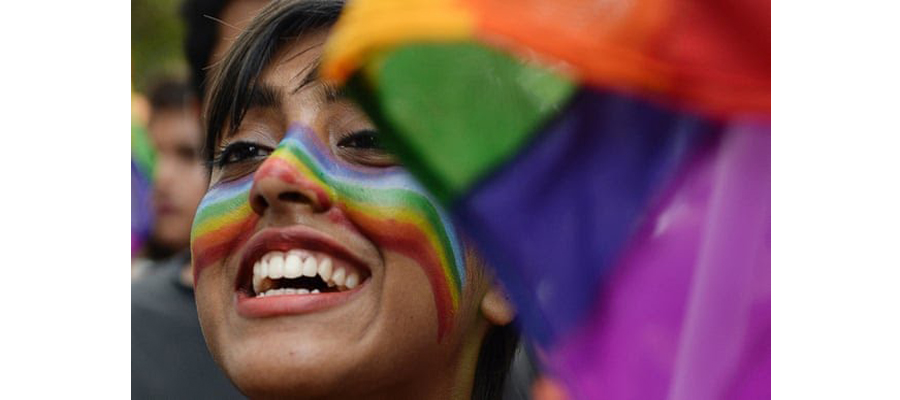India’s supreme court this morning, 6th September 2018, struck down a colonial-era law that criminalized homosexuality in what is now a landmark ruling for the gay rights movement in the country. The Supreme Court of New Delhi- India signed a verdict that scrapped Chapter XVI Section 377 of the Indian Penal Code (IPC) which referred to "unnatural offences", stipulating that anyone who voluntarily has carnal intercourse against the order of nature with man, woman or animal was to be punished. Anyone accused of homosexuality faced a sentence of lifetime imprisonment, up to 10 years and a hefty fine according to TIMESOFINDIA.COM. The now 'null and void' law was introduced in 1861 during the British rule in India, modelled on the Buggery Act of 1533.
In July 2009, Delhi High Court had ruled in favor of the nullification of Section 377 of the Indian Penal code with respect to sex between to consenting adults. However, it was later reversed by the two- judge Supreme Court bench on 11th December 2013 via the Suresh Kumar Vs Naz Foundation case based on the argument that repealing or amendment of Section 377 of the Indian Penal Code was a matter to be left to the Parliament, unlike the judiciary. Thus leaving the responsibility or the burden of the decision on the fate of Section 377 of the Indian Penal Code to the Supreme Court.
In February 2016, a hearing of the petition submitted by the Naz Foundation and others was held in the Supreme Court. At the time, Chief Justice of India, T.S Thakur said that all eight submitted petitions were to be reviewed again by a five-member constitutional bench.
A milestone judgement, also known as the Puttuswamy judgement was delivered by the Supreme Court which held the Right of Privacy as a fundamental right under the constitution on August 2017. It condemned discrimination stating that "The protection of sexual orientation lies at the core of the fundamental rights and the rights of the LGBT population are real and founded on constitutional doctrine."
Activists in Uganda, while sharing support for India online, noted among other messages “As we celebrate with the Indian LGBT+ community on this landmark achievement we remind ourselves as the Uganda movement to let this be our renewal of Hope moment. The sexual offences bill is set to be retabled on the floor of parliament and we must stand up and play our part to fight for our rights”.
While India moves to protect her citizens, Uganda’s minister of Ethics and Integrity Hon. Simon Lokodo two days ago prematurely announced that he was closing down the annual Nyege Nyege festival citing that the purpose of this festival, has been compromised to accommodate the celebration and recruitment of young people into homosexuality – a very absurd but not isolated action by representatives of the Uganda government.
Earlier this very year, Hon Lokodo also blocked the first annual conference on key and priority populations organized by the Uganda Aids Commission and Most at Risk Population Network because the conference was organized to “promote homosexuality and other dirty things” disguised as an HIV prevention event.
While attending the 138th inter-parliamentary union the Speaker of Uganda Parliament in reaction to a motion to discuss criminalization of homosexuality and its contribution to the global refugee crisis, Kadaga threatened withdrawal of the Uganda delegation from all IPU engagementS. On her return, while at the Ugandan federal parliament meeting, former Minister of Integrity Nsaba Buturo while praising Kadaga’s hate filled speech, appealed to parliamentarians and local communities to reject homosexuality in all its forms and manifestations and retable the anti-gay bill as soon as possible.
Among the other Members of Parliament that joined Buturo in applauding Kadaga’s hate mongering was chairperson of the Human Rights Committee of Parliament Hon.Javan Kamateeka who stated that “this bill Must come back and we must pass it quick”.
At a time when Uganda’s political environment has become quite charged following the arrest of key opposition personalities, there has been a growing online gay smear campaign rallying for rejection of these personalities for their assumed tolerance for LGBTI persons.
These anti LGBT+ actions in Uganda in just a period of one-year point to a worry-some chain of events for the Uganda LGBT+ movement as these actions don’t only affect access to such critical services like the AIDS conference but encourages state sanctioned discrimination in public social events.




